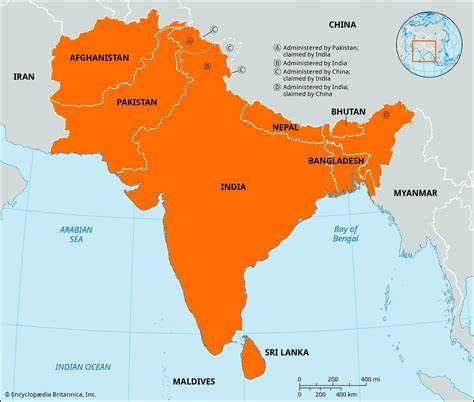- By Kamal Sikder
The recent comments by Professor Shahiduzzaman, a prominent security specialist from Bangladesh, have ignited a firestorm of debate in the region. Professor Shahiduzzaman suggested that Bangladesh has the means to counteract Indian technical aggression, and his statements have been warmly received in Pakistan, where they are seen as a testament to Bangladesh’s strategic strength. However, the reaction in India has been anything but calm. The Indian media and officials have been visibly disturbed by these remarks, indicating a significant shift in the country’s stance toward its neighbour.
In response to the growing tension, Indian officials, including Foreign Minister S. Jaishankar, have recently emphasized the importance of maintaining friendly relations with Bangladesh. This diplomatic overture underscores India’s recognition that both countries benefit from stable ties. Yet, beneath this conciliatory rhetoric lies a palpable anxiety. The Indian government’s reassessment of its strategy towards Bangladesh reveals a deeper concern: pushing Bangladesh too hard might push it closer into Pakistan’s embrace.
Pakistan has approached this rumour with caution, reflecting ongoing concerns about hidden Indian assets in Bangladesh and the historical support that Sheikh Hasina’s administration has extended towards India. For Pakistan, this raises significant security risks and adds a layer of complexity to the regional balance of power.
Despite these concerns, the idea of a nuclear treaty remains speculative at this stage and may not materialize. However, if pursued, such a treaty could provide Bangladesh with substantial leverage in its dealings with India. This leverage could enable Bangladesh to address bilateral issues on a more balanced and equitable basis, potentially leading to more favourable outcomes for Dhaka in negotiations with New Delhi.
The recent uproar in India is not solely about Professor Shahiduzzaman’s statements but is intertwined with broader political and strategic dynamics. Allegations have emerged suggesting that the current situation is being exploited for political gain within India, particularly in Jharkhand. There are claims that local politics are using the Bangladesh issue to target opposition parties, with accusations of illegal Bangladeshi entry being leveraged by the Enforcement Directorate (ED) and Central Bureau of Investigation (CBI). This manipulation raises questions about whether the issue is being used as a political tool rather than being addressed on its merits.
Amidst this turmoil, it is crucial to address the confusion surrounding Bangladesh’s alleged nuclear capabilities. Recent reports have suggested that Bangladesh might be involved in nuclear treaty discussions, not in developing nuclear weapons. The distinction is significant: while Bangladesh might be considering its strategic options, there is no concrete evidence of an active nuclear weapons program. The focus should be on understanding these discussions as part of a broader diplomatic and security strategy rather than as a direct threat.
The current scenario echoes historical precedents, such as Russia’s actions in Georgia in August 2008. The potential for a similar strategic maneuver by India, influenced by regional examples and strategic interests, cannot be dismissed. The Indian government’s recent emphasis on military readiness, including statements by Defense Minister Rajnath Singh, reflects an increased focus on potential conflicts. This heightened preparedness, coupled with the strategic significance of regions like the Shiliguri Corridor and the involvement of China, adds layers of complexity to the situation.
China’s role in this regional dynamic is particularly noteworthy. With its concerns over connectivity through the Shiliguri Corridor and its strategic links to India, China’s influence is a critical factor in the security calculus. The interplay between US, Chinese, and Indian interests in the region further complicates the strategic landscape. The US views China as a primary threat, and India’s support or opposition in the region can significantly impact this balance.
The current tension between the United States and China does not necessarily presage a direct military conflict between the two global giants. Both nations have substantial interests in avoiding a full-scale war, given the potentially devastating consequences for their economies and global stability. However, the U.S. aims to maintain strategic pressure on China, and India plays a crucial role in this strategy.
India’s strategic importance to the U.S. in its containment policy against China is undeniable. Yet, the U.S. is wary of empowering India to the same extent it did China in the past. The Western approach towards India is marked by a cautious pragmatism, shaped by lessons learned from the unchecked rise of China. The West, now grappling with the economic, technological, and scientific repercussions of China’s ascension, is keen to avoid repeating the same mistakes with India.
India’s current technological and intellectual property landscape reveals its reliance on external sources. The country lacks significant independent technological innovation and intellectual property, with most of its advancements borrowed from the West or Russia. This dependency positions India in a vulnerable state, and from a Western perspective, a weaker India is preferable. It allows the U.S. to leverage India’s security concerns and strategic vulnerabilities to its advantage.
Should a nuclear treaty between Bangladesh and Pakistan come to fruition, it could serve U.S. interests by heightening India’s security dilemmas. This heightened vulnerability could be used to justify increased U.S. engagement and influence in the region, while simultaneously keeping India under strategic pressure. The U.S. might exploit these conditions to maintain its influence over India, akin to the way Bangladesh was utilized as a vassal state during Sheikh Hasina’s tenure.
In this geopolitical landscape, the U.S. benefits from a scenario where India remains a strategic player but does not achieve the level of autonomy and strength that might rival China. While India aspires to be recognized as a major global power, its current capabilities and global standing fall short of China’s. The U.S. strategy appears to involve nurturing India’s role as a counterbalance to China while ensuring that India does not surpass the boundaries set by U.S. interests.
Thus, the prospect of a nuclear treaty between Bangladesh and Pakistan fits within a broader framework of strategic manoeuvring by global powers. The U.S. aims to use India’s security challenges to its advantage, while ensuring that India remains within a manageable sphere of influence. This approach underscores the complex interplay of regional and global politics, where strategic interests and geopolitical calculations drive the actions of major powers.
As tensions escalate, the potential for an aggressive Indian response raises significant concerns. The high stakes involved in this geopolitical game underscore the necessity for careful strategy and preparation. Both India and Bangladesh must navigate this complex landscape with caution, avoiding actions that could lead to unintended and potentially disastrous outcomes.
The rumour of a Pakistan-Bangladesh nuclear treaty and the associated strategic manoeuvres are reflective of a broader, intricate web of regional politics and security concerns. The situation demands a nuanced approach, balancing diplomatic engagement with strategic readiness. The potential for conflict and its ramifications highlights the importance of thoughtful and informed policy decisions in maintaining regional stability.
- Kamal Sikder is a UK Data Scientist, Journalist and TV Presenter










